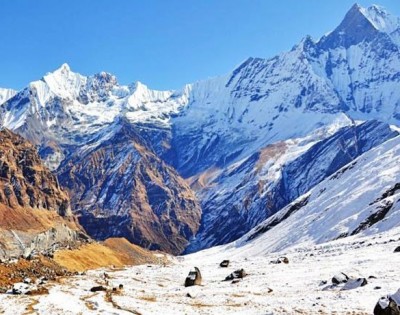In recent years, Nepal — a land of towering Himalayas, ancient temples, and diverse ecosystems — has taken significant steps to prioritize sustainable and eco-friendly tourism. As global awareness about environmental conservation grows, Nepal’s travel industry is embracing responsible practices to protect its pristine landscapes and vibrant cultures for generations to come.
Sustainability in tourism is no longer just a trend — it’s becoming the foundation for how travel is envisioned and experienced in Nepal.
What is Sustainable Tourism?
Sustainable tourism means traveling in a way that respects the environment, supports local cultures, and benefits the communities travelers visit. It involves minimizing negative impacts while maximizing the positive contributions tourism can make to conservation and cultural preservation.
In Nepal, where fragile mountain ecosystems and indigenous traditions are an integral part of the attraction, the need for sustainable practices is especially urgent.
Examples of Eco-Friendly Tourism Initiatives in Nepal
1. Eco-Lodges and Green Hotels
Across Nepal, eco-lodges are emerging in trekking regions like Annapurna, Langtang, and Everest. These lodges use solar energy, composting toilets, rainwater harvesting, and sustainable building materials to minimize their environmental footprint.
2. Burhan Wilderness Camps
Located near Bardiya National Park, Burhan Wilderness Camps offer immersive eco-tourism experiences — from bushwalks with anti-poaching units to sustainable safari adventures. These camps aim to protect the Khata Wildlife Corridor while providing meaningful jobs for local communities.
3. Waste Management on Trekking Trails
Organizations and local communities have launched “Clean Up” campaigns along famous trekking routes like the Everest Base Camp and Annapurna Circuit. Trekkers are encouraged to bring reusable bottles and reduce single-use plastics.
4. Community-Based Tourism
Places like Ghalegaun and Barpak promote community homestays, where travelers stay with local families, experience authentic village life, and directly support the host communities.
Why Eco-Friendly Tourism Matters for Nepal
Protects Fragile Ecosystems: Nepal’s ecosystems — from rhododendron forests to alpine tundras — are sensitive to pollution and over-tourism. Sustainable practices help preserve biodiversity.
Supports Local Economies: Community-based tourism ensures that travel dollars stay in local hands, fostering economic empowerment and reducing migration pressures.
Preserves Culture and Heritage: Eco-tourism promotes the protection of Nepal’s diverse cultural traditions, languages, and crafts.
Encourages Responsible Travel Behavior: By educating travelers about environmental and cultural sensitivity, Nepal fosters a more meaningful and respectful travel experience.
Tips for Travelers Who Want to Travel Sustainably in Nepal
Choose eco-certified lodges and tour operators.
Carry reusable water bottles and bags.
Avoid single-use plastics whenever possible.
Respect local cultures, traditions, and wildlife.
Support local businesses, artisans, and community-based tourism initiatives.
Join or support conservation projects if your trip allows.
A Greener Future for Nepal’s Tourism
Nepal's move toward sustainable tourism is more than just an industry shift — it’s a commitment to ensuring that its majestic mountains, lush forests, and living traditions continue to inspire travelers for centuries.
As a visitor, you become part of this story. By making conscious choices, you help Nepal protect what makes it one of the most awe-inspiring destinations on Earth.
Travel with heart. Travel with respect. Travel sustainably in Nepal.


